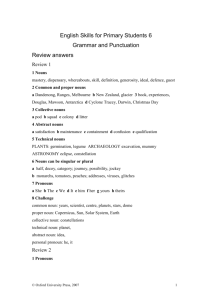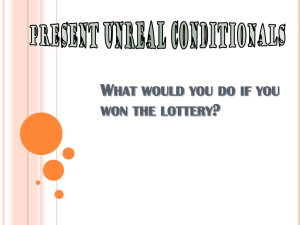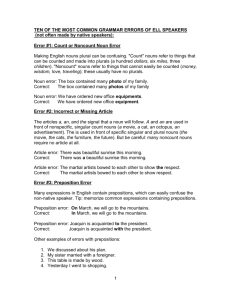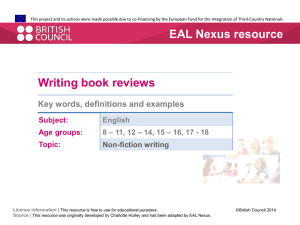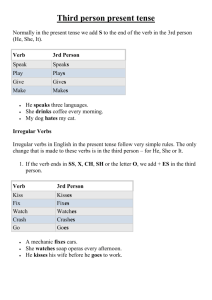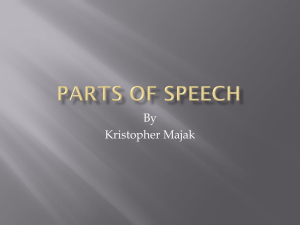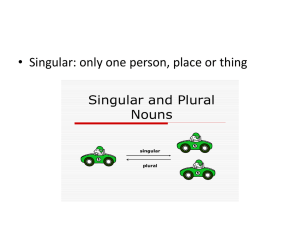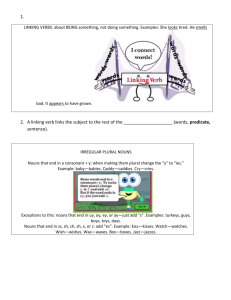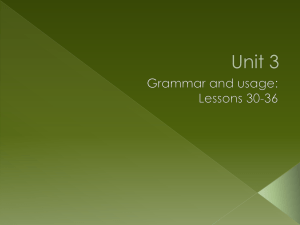Grammar Lessons 4
advertisement
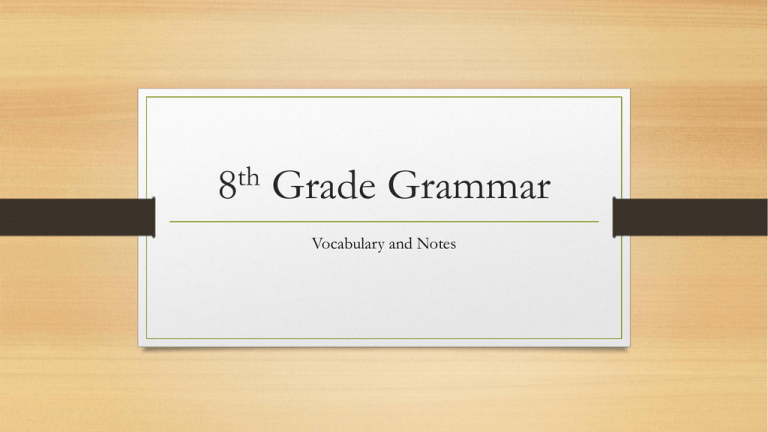
th 8 Grade Grammar Vocabulary and Notes Grammar Lesson 4 • Vocabulary • Bicameral: a government term meaning “having two branches, chambers, or houses.” • Impeachment: the process of bringing formal charges against a public official. Proper Nouns • • • • • A common noun doesn’t name a specific person, place, or thing. Proper nouns name a specific person, place, or thing. Proper nouns need to be capitalized. Common nouns are capitalized when they are part of a proper noun. Small words in proper nouns are not capitalized unless they are the first or last word. Concrete, Abstract, and Collective Nouns • A concrete noun names a person, place, or thing. • Concrete nouns may be common or proper. • An abstract noun names something that cannot be seen or touched. Abstract nouns name something you can think about. • A collective noun names a collection of persons, places, or things. Grammar Lesson 5 • Vocabulary • Affection: fondness or devotion • Affectation: phoniness, pretension, and artificiality Verb Tense • • • • Tense means time. Verbs tell us what action is occurring and when it is happening. Verb form, or tense, changes to show when the action takes place. Three simple verb tenses: • Present • Past • Future Present Tense • • • • • Present tense – shows that action is happening now. Add an s when the subject is singular. Don’t add an s when the pronoun is I or you. Add an es when the verb ends in s, x, z, ch, or sh, and the subject is singular. When a verb ends in a consonant and a y, change the y to i and add es for the singular form. Past Tense • Past tense shows action that has already occurred. • Add an ed to form the past tense of regular verbs. • When one-syllable verbs end in a consonant, double the consonant and add ed. • When a verb ends in e, drop the e and add ed. • When a verb ends in y, change the y to i and add ed. Errors to Avoid • Do not use present tense form to express past tense. • Do not shift from past to present in the same phrase. Grammar Lesson 6 • Vocabulary • Placate: to calm or to satisfy • Pacifist: a person who opposes war or violence Helping Verbs • • • • A main verb in a sentence may have one or more helping verbs. The main verb shows action. Helping verbs do not show action, but help form verb tense. Common helping verbs to memorize: • Is, am, are, was, were, be, being, been, has, have, had, may, might, must, can, could, do • Does, did, shall, will, should, would
